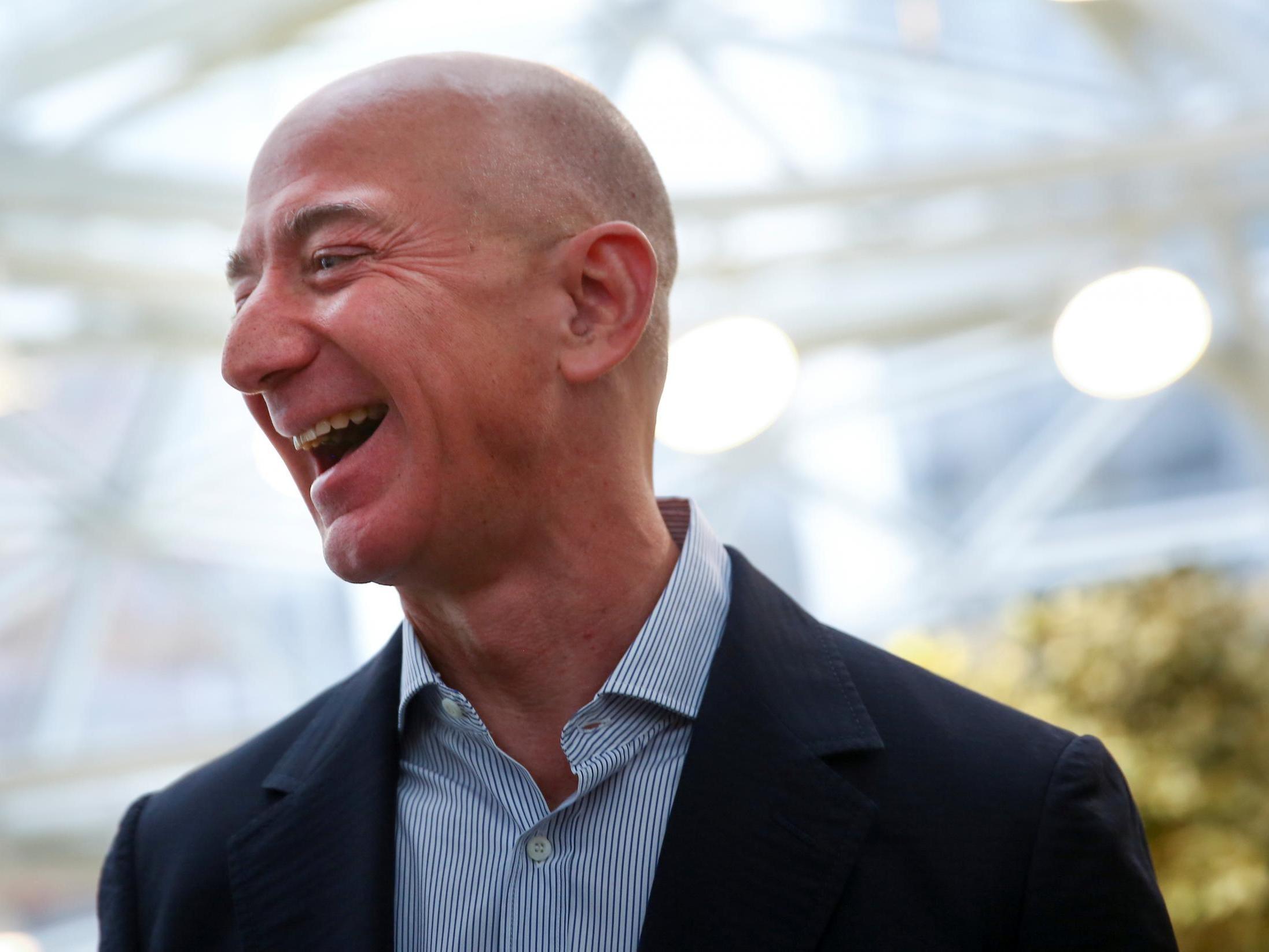The Independent's journalism is supported by our readers. When you purchase through links on our site, we may earn commission.
What the global rich lists can tell us about social mobility, distribution of wealth, and how to become a millionaire
Technology is the key sector – it is what manufacturing was a century ago. That J K Rowling is worth upwards of $750m is wonderful, but that is less than one hundredth the wealth of Amazon founder Jeff Bezos


It is that time of year when Britons confront the disagreeable truth that there are a lot of people in the world who are richer than they are.
That is not a comment on Brexit, house prices in London, or the increase in wealth inequality (though not income inequality) that has taken place since the central banks embarked on quantitative easing after the great recession of 2008-09. It is simply that the boom in high-tech share prices has propelled Jeff Bezos, founder of Amazon, to become the richest person in the world worth some $130bn, and according to the US magazine Forbes, the fifth most powerful person in the world, behind Xi Jinping, Vladimir Putin, Donald Trump and Angela Merkel.
Meanwhile the more modest tally of British and Irish wealth is about to be published by The Sunday Times. Sneak previews of the richest sporting stars or richest models have already appeared. What should we make of all this, bearing in mind the tenth commandment?
Well, the starting point is that rich Americans, plus a few rich Europeans, and now a few rich Chinese and Indians have vastly more wealth than anyone in the UK – even wealthy foreigners who base themselves in London. That is largely a function of US dominance of high tech and of the rapid growth of China and India. For whatever reason, the UK has not been able to capitalise on the new industries, or at least not on a globally significant scale. A handful of continental Europeans do appear on the list: Bernard Arnault in France (LVMH), Amancio Ortega in Spain (Zara), and the Bettencourt family also in France (L’Oreal).

Next, most of the global wealth is self-made and relatively recently built up. It is first or second generation, rarely third. The American dream that anyone can become rich may be rather battered by reality but at the very top it still holds true.
More than this, in China, which has two people in the top 20 – Ma Huateng (Tencent) and Jack Ma (Alibaba) – the wealth has entirely been generated since the economic reforms that began in 1978 and really only took hold in the 1990s.
Third, none of the biggest fortunes are from land or property. Landowners and property developers can do very well – though there are some question marks over the real wealth of Donald Trump – but technology is the key sector. It is what manufacturing was a century ago.
Retailing does well, particularly so when allied with technology. But other sectors, such as natural resources, while hugely important to the economy, don’t seem to create the biggest fortunes as they did in the days of the Rockefellers.
In terms of the speed at which people can make money, however, the entertainment business, broadly defined, tops the list. The absolute wealth of even the very top entertainers – sports stars, authors, actors – is far below that of the high-tech titans. But the speed may be faster: sports stars’ peak earnings are in their late 20s. And because there are so many different forms of entertainment the field is much wider. But the numbers have to be put into perspective. I am in awe of J K Rowling, not just for her material success but also for the service she has given to humankind by encouraging young people to read books. That she is worth upwards of $750m is wonderful. But that is less than one hundredth the wealth of Jeff Bezos.
That leads to a further point: public attitudes to wealth. If people can see how money is made, as they can with sports stars, authors and actors, then they are generally cheered on. If they can’t, as with hedge fund managers, then wealth creates resentment. The intriguing example of a fund manager who is a popular hero is Warren Buffett, number three in the global wealth league, and that is because so many of his followers bought stock early on and thus have shared in his wealth.
A final thought. Is it really possible from someone on a modest income to become rich by saving and investing sensibly? One of the most uplifting stories I have read in the past week comes from The New York Times.
It is about a woman who worked as a secretary in a New York law firm. She built up her share portfolio by watching what the partners did and then putting a small amount of her modest salary into the same stocks. She died recently, aged 96 – and left $8.2m, most of it to charity.
Join our commenting forum
Join thought-provoking conversations, follow other Independent readers and see their replies
Comments
Bookmark popover
Removed from bookmarks